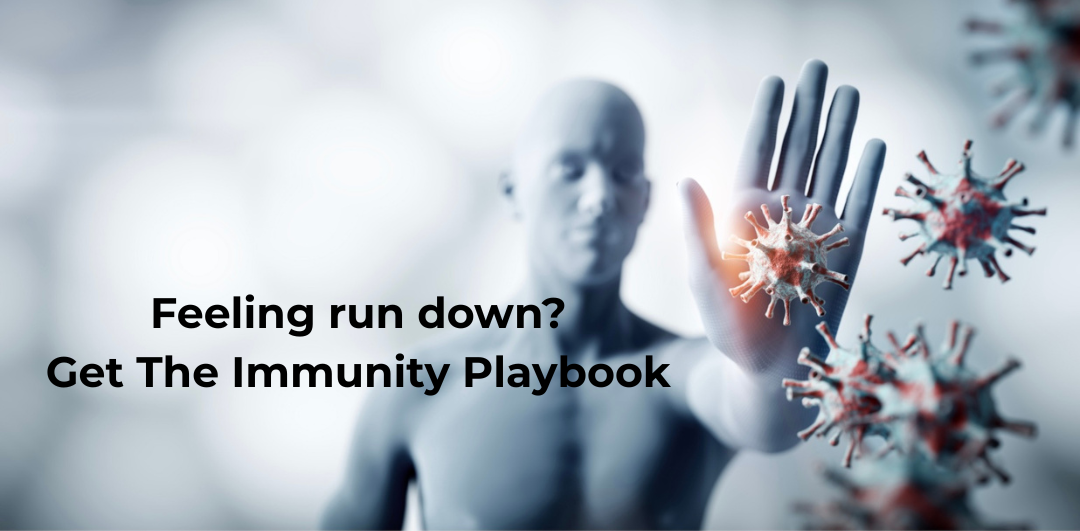Functional Medicine to Ease Anxiety
Sep 22, 2022
Dealing with anxiety can impact the quality of your life in a big way. Whether it’s dealing with anxiety or panic attacks regularly or losing sleep because of overthinking, anxiety is a pain. Go to your general practitioner or a psychiatrist, and you’ll most likely get a prescription for something. Most anxiety medications work on the neurotransmitters in the brain to ease anxiety and can be helpful in some cases, but they certainly don’t address the root cause.
If you’re tired of anxiety and taking anxiety medication, why not try a different approach to dealing with the issue? There are three main underlying health issues that contribute to anxiety, which I’ll discuss below, and there are ways to address these via functional medicine.
Here’s what you need to know.
Root Causes of Anxiety
As I said, there are three main health issues that can greatly contribute to anxiety, which we’ll cover here.
Gut Health
If you’ve worked with me before or followed me on social media for a time, then you’ve heard me discuss how important gut health is to the entire body. In fact, the gut is so important to our health that it’s known as the second brain of the body. So, it shouldn’t come as a surprise that if your gut is imbalanced, it can lead to changes in the brain. For example, inflammation or overgrowth of small intestinal bacteria in the gut can induce an inflammatory response in the body that will reach the brain and cause inflammation and other issues there.
Several mental health issues are a result of imbalances in the serotonin of the brain. Well, guess what? Your gut has approximately 400 times more serotonin than your brain does. Think about how that much serotonin being imbalanced could affect you! Dysfunction of the serotonin in the gut could lead to mood and behavioral disorders, depression, and anxiety.
There’s actually a theory now that the cause of depression is the inflammatory cytokine model of depression. This theory states that inflammation in the gut (or elsewhere in the body) suppresses how active the front cortex is, thereby causing depression. There’s also been research into the connection between gut health and ADHD, OCD, sensory processing disorder, and more.
HPA Axis
This next thing I’ve discussed a bit, but not as much as gut health, so it may be less familiar to you. The HPA axis (hypothalamic-pituitary-adrenal axis), also known as the SAS (sympathoadrenal medullary system), would be the next best place to look for the root cause of anxiety. What are these? Essentially, the HPA axis is what governs how well we tolerate stress and how we respond to it. Think fight-or-flight response; that’s the HPA axis and SAS.
These days we’re surrounded by stressors, both external and internal. Whether it’s the stress of our job, stress related to our family life, or just feeling overwhelmed by the many things that need to be accomplished each day, we’re constantly stressed. So, what happens when we’re in eternally stressed, fight-or-flight mode? When we’re under stress, our bodies release more stress hormones, such as cortisol and DHEA, which in turn affect other hormones and neurotransmitters. And our bodies weren’t designed to be under constant stress, so it leads to inflammatory disease, which, as we discussed above, can cause inflammation in the brain.
Four Main Triggers of Stress
There are four main triggers that can lead to our systems becoming overstressed.
The first is what’s known as perceived stress. What is perceived stress? It’s stress that you actually perceive to be stressful. Seems odd, but not all stress is harmful to us; only that which we see as stressful. Think of how being late to an event might stress out your best friend, but you wouldn’t be bothered by it at all. That’s perceived stress.
The next trigger is inflammation. I talk about inflammation a lot, as well, but that’s because it affects so much in our bodies. If you have constant inflammation, it’s putting stress on your body even if you don’t perceive that stress.
This is why blood sugar dysregulation is also a trigger for the HPA axis. Blood sugar dysregulation is when the pancreas either cannot make enough insulin, makes too much, or is unable to use insulin correctly. You’ve likely heard the term “insulin resistance” before, which is when cells slow down the transportation of glucose. This can also be a hidden stressor on your body.
Finally, there’s the disruption of your circadian rhythm or your sleep-wake cycle. Too often, this gets disrupted by not getting enough natural light exposure during the day but getting too much artificial light at night. Doing things such as reading on your device or watching television right before bed can have a negative effect on the body and disrupt the HPA axis.
Nutritional Deficiencies
Yep, this is another thing you’ve heard me talk a lot about! Nutritional deficiencies can cause a ton of health problems, and it’s no different when it comes to your mental health. And unfortunately, most people aren’t getting all the nutrients they need each day.
The main nutrients that help regulate our mental health are B6, B12, Vitamin D, choline, copper, DHA, EPA, folate, and zinc. These are all vital to a process known as methylation, or the process in your body that affects the production of neurotransmitters. If your body’s methylation is off, then you won’t produce enough neurotransmitters, which can cause anxiety to rear its head.
How to Address These Root Causes
Ready to learn how you can address these root causes of anxiety with functional medicine?
Gut Health
The first thing you need to do is check the gut to see if it’s imbalanced by bacteria/fungal overgrowth, SIBO, parasites, dysbiosis, or inflammation. As your functional medicine practitioner, I can help you figure out the best test for you. Once you know what, if anything, is going on with your health, we can work together to come up with a plan to address the imbalances. You can also check out my free e-book for ways to improve the health of your gut.
HPA Axis
When it comes to the HPA axis and SAS, you’ll need to figure out which of the four triggers is upsetting your system. One way to do that is with a Comprehensive Hormone panel. You can also check your stress hormone levels with a cortisol awakening response test or saliva test.
If you’d rather jump straight to addressing these triggers, you can do that too. When it comes to dealing with stress, you can attempt to remove or reduce perceived stress. This may be learning to say “no” to people when you’re feeling overwhelmed or declining an activity that’s stressing you out more than bringing you joy. You can also learn to better manage stress that’s unavoidable. Some ways to manage stress include yoga, meditation, relaxation exercises, and mindfulness stress reduction. If you’re unsure where to start with any of these activities, you can easily find videos on YouTube to get you started.
Inflammation will be a bit more challenging to address, but together we can come up with a plan that works for you. One good place to begin, though, is by following an anti-inflammatory diet and cutting out processed foods and refined carbs. Doing this will also help you with blood sugar regulation.
And when it comes to not disrupting your circadian rhythm, you’ll want to ensure you get enough exposure to natural light during the day while reducing the amount of unnatural light you’re receiving at night. That means getting outside for a bit each day and putting away tablets and other blue light devices at least an hour before bed.
Nutritional Deficiencies
Finally, we have nutritional deficiencies, which are a bit simpler to address. Your first step will be to get nutrient testing to figure out which nutrients you’re lacking. Then, we can put together a plan to address those deficiencies.
Addressing nutritional deficiencies can involve taking supplements to replace what’s needed, as well as making changes to your diet so that you’re eating more foods containing the nutrients you need. Some excellent foods that are rich in nutrients include non-starchy veggies, nuts, seeds, fruit, and seafood. Just a few tweaks to your diet can do a world of good!
Final Thoughts
If you’re ready to address the root causes of your anxiety so you can get back to an uninterrupted life, set up your free consultation with me today. Together we can figure out what ails you and put together a plan that works best for you and your lifestyle, so you can get back on track. You can also download my free e-book to get started on the path to better health!


